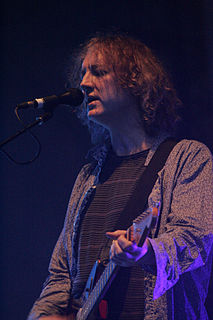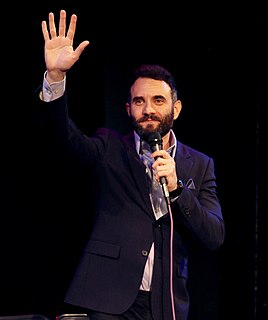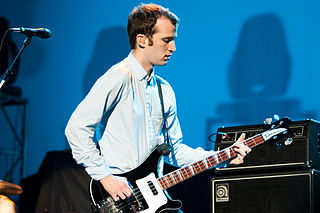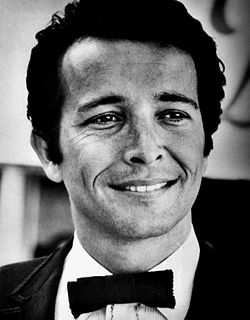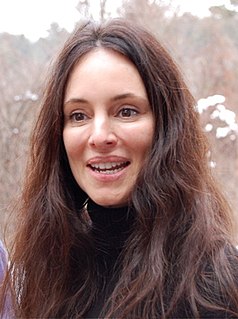A Quote by Beck
I'm always looking for older equipment and ways of recording, but you can't escape the fact that it's all going to be digitized and reduced. I do think music sounds better when it's on tape and more simply recorded. I've been arguing with people for 10 years about tape versus digital, and I believe tape is absolutely essential in getting the sound that's conducive to the enjoyment of music. I wonder if it's going to go back to that. Sometimes I think it has to. As music becomes more computer-based, it's lost some emotional impact.
Quote Topics
About
Absolutely
Always
Arguing
Back
Based
Becomes
Been
Believe
Better
Computer
Conducive
Digital
Emotional
Enjoyment
Equipment
Escape
Essential
Fact
Getting
Go
Going
I Believe
Impact
Looking
Lost
More
Music
Older
People
Recorded
Recording
Reduced
Simply
Some
Sometimes
Sound
Sounds
Tape
Think
Versus
Ways
Wonder
Years
Related Quotes
I had invented my own system, my own way of making electronic music at the San Francisco Tape Music Centre, and I was using what is now referred to as a classical electronic music studio, consisting of tube oscillators and patch bays. There were no mixers or synthesizers. So I managed to figure out how to make the oscillators sing. I used a tape delay system using two tape recorders and stringing the tape between the two tape machines and being able to configure the tracks coming back in different ways.
There's always this talk of the industry of music and about selling records and whatever, but that ignores probably the majority of music that isn't about trying to sell itself, that isn't about being connected to any industry. There's a huge amount of music where someone just happened to have a tape recorder and turned it on or hit the red button while they were in the back of church or recording something in their front room.
People who leave their cars on the street with tape covering their broken windows are obviously too trusting. I mean, when your car did have glass for a window, someone broke into it. How is tape any more of a deterrent? What are the thieves going to say? Ooh, that like looks like duct tape, we can't beat that. Let's look for one with scotch or masking.
I could go play some songs for two hours every week - play whatever I wanted to - and then also spend that time putting more music on my computer and getting into more things. It definitely informs the way that I think about music and I think in general, made me a more open-minded consumer of music.





